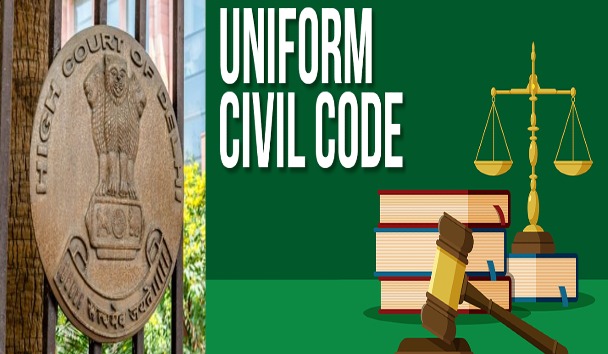
The Delhi High Court stated on Tuesday that lawyer Ashwini Kumar Upadhyay’s plea seeking the implementation of a Uniform Civil Code (UCC) was prima facie not maintainable and asked him to file prayers made by him in similar matters before the Supreme Court.
“You file those prayers. We’ll see. It is prima-facie not maintainable. We will first see if it is maintainable,” Upadhyay was told by a bench of Chief Justice Satish Chandra Sharma and Justice Subramonium Prasad.
The court was informed that in March, the Supreme Court refused to hear Upadhyay’s petitions on gender neutral and religion neutral laws, stating that these fell within the legislative realm, and that he had even withdrawn a plea from there in relation to UCC in 2015.
The court stated that a “simpliciter withdrawal” must be distinguished from a “withdrawal with liberty” in order to approach a court with the same grievance, and ordered the petitioner to file the requests in these cases within four weeks.
Lawyer MR Shamshad, representing the All-India Muslim Personal Law Board, claimed the Supreme Court had rejected Upadhyay’s petitions on the same subject matter.
“He filed four petitions before the Supreme Court, all of which were dismissed. It was his second round,” he explained.
Upadhyay stated that his petitions to the Supreme Court addressed talaq (divorce) under Muslim law and that he was awaiting the law commission’s response.
In May 2019, the high court had sought the Centre’s response to Upadhyay’s plea seeking the formation of a judicial committee to draft the UCC in order to promote national integration, gender justice and equality, and women’s dignity.
In addition to Upadhyay’s plea, four more petitions have been filed arguing that India “urgently requires a Uniform Civil Code.”
The petitioners argue that gender justice and gender equality, guaranteed by Articles 14-15 of the Constitution, and women’s dignity, guaranteed by Article 21, cannot be secured without implementing Article 44 (the State shall endeavour to secure for citizens a UCC throughout the territory of India).
According to the petitions, the UCC will replace personal laws, which are based on the scriptures and customs of diverse religious organisations, with a common set of regulations governing every citizen of the country.
In reply, the Centre stated that residents of different religions and denominations adhering to different property and marriage laws is an affront to national unity, and that the Uniform Civil Code will result in India’s integration.
It has, however, said that a petition for the creation of the UCC is not maintainable since it is a “matter of policy” that must be resolved by the elected representatives of the people and no direction may be issued in this regard.
After receiving the law commission’s findings, the Centre has stated that it will investigate the problem of developing the Code in consultation with stakeholders.
The case will be heard again on August 3, 2023.




